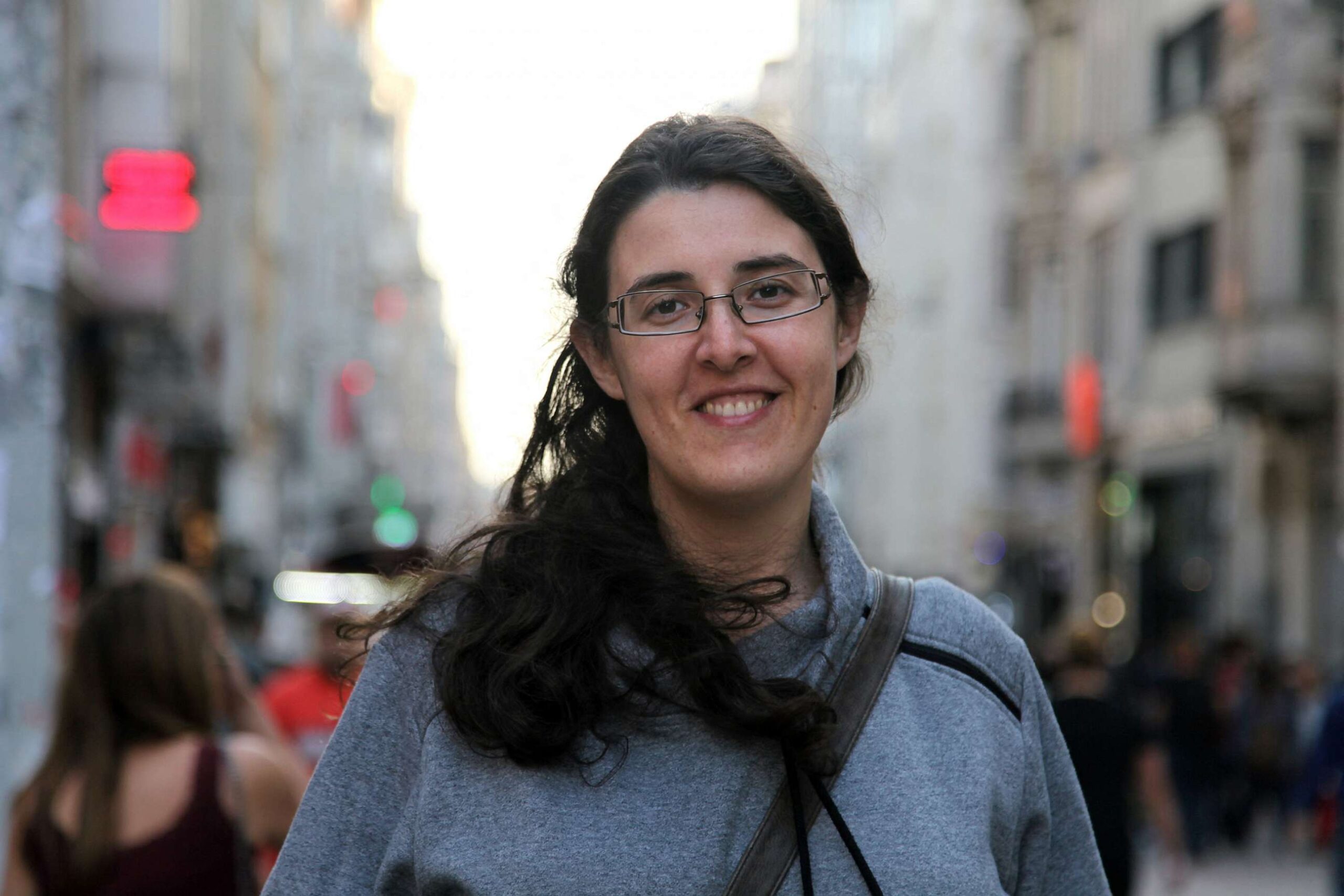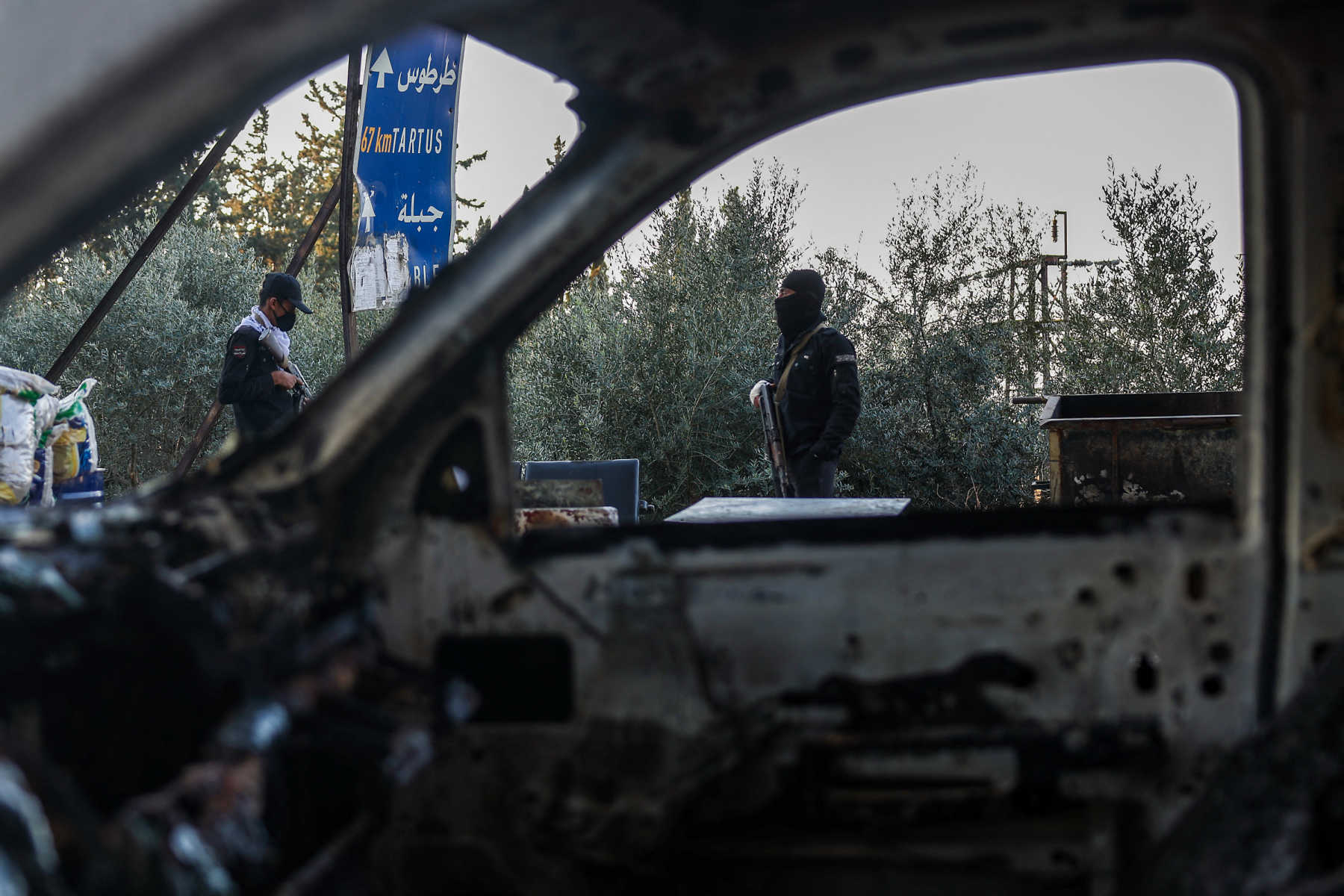Abdelkader Cheref is an Algerian academic and journalist based in the United States.
عربي
Three years ago, mass protests began in Algeria that put a sudden end to the 20-year rule of President Abdelaziz Bouteflika, pulling the plug on his plans for a fifth presidential term. The protest movement known as the Hirak, which launched its first widescale, national protests against Bouteflika on Feb. 22, 2019, drove millions of Algerians into the streets for weekly demonstrations every Friday in Algiers and across the country. It was unparalleled in contemporary Algerian history. The Hirak's demands were far-reaching, calling for the removal of Algeria's deeply entrenched and military-backed ruling elite and a negotiated transition toward democratic governance, with Algerian citizens finally having a say in how decisions are made.
The Hirak was perhaps best symbolized by a young Algerian man, Sofiane Bakir Turki, who unexpectedly walked into the live shot of a Sky News Arabia journalist reporting from the streets of Algiers on the night that Bouteflika resigned. On camera, the reporter said that Algerians were rejoicing at Bouteflika's resignation. Turki forcefully stated in Algerian dialect, "Yetnahaw gaa"—they should all go. The reporter repeatedly interrupted him, asking him to speak in fusha—"Arabic," she said—rather than Algerian dialect. This is our Arabic, he said defiantly, and we are not celebrating. The Hirak wanted more than just Bouteflika's resignation.
That phrase, "Yetnahaw gaa"—calling for the complete removal of the regime that has ruled Algeria ever since its independence from France in 1962—immediately became the Hirak's mantra. It remains a popular slogan today, with the movement's demand still not met.
Although the president who succeeded Bouteflika in late 2019, Abdelmadjid Tebboune, praised the Hirak as a "blessed movement" that "saved Algeria," his government has more recently intensified a crackdown on it, targeting independent journalists, academics, civil society activists and recalcitrant political parties. A counterrevolution is underway, with Algeria's deep-seated regime trying to annihilate the Hirak and stifle any dissenting voice in the country. Despite the calls for sweeping reforms that the Hirak brought out into the streets, the reality today is that the repressive nature of the Algerian system hasn't changed.
The so-called political reforms undertaken after Bouteflika's resignation by the powers that be—what many Algerians call the shadowy pouvoir—look increasingly cosmetic. The regime's motives are all too clear. It is determined to muzzle opposition groups and anybody who has been involved in the Hirak.
Despite the calls for sweeping reforms that the Hirak brought out into the streets, the reality today is that the repressive nature of the Algerian system hasn't changed.
- Abdelkader Cheref
After responding to the Hirak's mass protests and forcing out the long-serving Bouteflika, the regime made some initial, tentative moves toward apparent reform. Admitting that Bouteflika's 20-year rule was rife with embezzlement and profligacy, the authorities launched a vast judicial probe, indicting corrupt regime dignitaries, including two former prime ministers, Abdelmalek Sellal and Ahmed Ouyahia, and the former heads of the notorious Department of Intelligence and Security, Mohamed Mediène, widely known as Toufik, and his successor, Athmane Tartag. Even Said Bouteflika, the influential younger brother of the former president who was widely considered to be Algeria's ruler behind the scenes after Abdelaziz Bouteflika suffered a stroke in 2013, was indicted for abuses of power.
It goes without saying that this anti-corruption campaign uncovered the venality of state officials. In light of court revelations, the Hirak insisted on a more drastic change of the system and the removal of all figures from Bouteflika's regime.
But while largely tolerating the Hirak protests in the late winter of 2019, the authorities rejected the demands for a negotiated political transition. By the summer of 2019, they started arresting many of the Hirak's leading activists and organizers, as well as journalists and others, charging them with vague offenses such as "harming national unity."
In the face of the Hirak's fears that the authorities would ultimately reinstate the old order, the regime went ahead with a tightly controlled presidential election in December 2019. All five candidates had ties to Bouteflika, including the hollow "winner" Tabboune, who had served for years as his housing minister and then briefly as his prime minister. Public dissatisfaction with the poll was obvious in the low turnout of under 40 percent.
By the spring of 2020, the COVID-19 pandemic gave the regime ample time not only to rebuild itself, but also to further contain the Hirak. The authorities took various measures to consolidate their grip on power and dodge the people's legitimate demands for reform.
While the ruling class and the military's top brass backed revising the constitution through a referendum and new elections, Hirak protesters rejected their proposed roadmap, calling it a "façade" of reform. They were in favor of a transitional period and a constituent assembly—two conditions, they maintained, that would be genuinely democratic and guarantee the founding of a new, representative republic in Algeria. It was little surprise that when the authorities went on with their plan, many Algerians boycotted the vote for the new constitution. Voter turnout was only 23.7 percent.
In the current political climate, everybody is at risk, except for the aged apparatchiks and venal clientele gravitating around the regime.
- Abdelkader Cheref
Turnout in parliamentary and local elections last year was also dismally low, in a very public rejection by Algerians who forcefully refused to legitimize the regime through more elections held under the usual repression. The lack of voter participation was indicative of the government's ongoing failure to appease Hirak protesters.
A case in point is the fate of a 50-year-old activist, Abdellah Benaoum, who was arrested in late 2019 and later charged with "undermining national unity" and "attacking the morale of the army." Though Benaoum underwent heart surgery last November, he has been on hunger strike for several months because of his arbitrary detention.
Algerian authorities have also labeled the London-based Rachad group, an opposition political movement alleged to be linked to Algerian Islamist groups, as a terrorist organization. Rachad has, in fact, been calling for good governance and nonviolent regime change in Algeria since its inception in 2007.
NGOs have been targeted too, including the Youth Action Rally, a civil society association known as the RAJ that has played an active role in the Hirak. Last fall, a court in Algiers dissolved the RAJ. While its leader, who was sentenced to one year in prison, managed to flee Algeria for political asylum in Switzerland, several RAJ members are still in jail in Algeria.
Political parties have not been spared either. The judiciary last month ordered the Socialist Workers' Party to freeze its political activities. The party said the suspension was "about making our party pay for its political positions and its resolute commitments within the Hirak against repression and alongside social struggles."
Last but not least, Fethi Gherras, the spokesperson of the Democratic and Social Movement, or MDS—an outgrowth of the Algerian Communist Party, which also was active in the Hirak—was sentenced to two years in prison in January. He too was convicted on the basis of vaguely defined charges such as "offending public bodies" and "spreading information that could harm national unity."
To maintain the status quo and stabilize the regime, the authorities regularly resort to terrorism charges to prosecute critical voices. Academics, journalists, human rights advocates and political activists have all been targeted. Some are abusively detained and even reportedly tortured, while others serve lengthy jail times before a conviction. According to the National Committee for the Liberation of Detainees, an Algerian rights group launched in 2019, some 335 people are currently imprisoned in Algeria because of their association with the Hirak. Since late January, approximately 40 of these prisoners of conscience went on hunger strike in Algiers' notorious El-Harrach prison, denouncing their arbitrary imprisonment and the fabricated charges against them.
In the current political climate, everybody is at risk, except for the aged apparatchiks and venal clientele gravitating around the regime. Algeria's only salvation can come if the Hirak can carry on mobilizing the masses, including by overcoming its own internal divisions, and roll out a political alternative to finally overhaul this old autocratic system.
















![Security forces loyal to the interim Syrian government stand guard at a checkpoint previously held by supporters of deposed president Bashar al-Assad, in the town of Hmeimim, in the coastal province of Latakia, on March 11, 2025. Syria's new authorities announced on March 10, the end of an operation against loyalists of deposed president Bashar al-Assad, after a war monitor reported more than 1,000 civilians killed in the worst violence since his overthrow. The Syrian Observatory for Human Rights said the overwhelming majority of the 1,068 civilians killed since March 6, were members of the Alawite minority who were executed by the security forces or allied groups. (Photo by OMAR HAJ KADOUR / AFP) / “The erroneous mention[s] appearing in the metadata of this photo by OMAR HAJ KADOUR has been modified in AFP systems in the following manner: [Hmeimim] instead of [Ayn Shiqaq]. Please immediately remove the erroneous mention[s] from all your online services and delete it (them) from your servers. If you have been authorized by AFP to distribute it (them) to third parties, please ensure that the same actions are carried out by them. Failure to promptly comply with these instructions will entail liability on your part for any continued or post notification usage. Therefore we thank you very much for all your attention and prompt action. We are sorry for the inconvenience this notification may cause and remain at your disposal for any further information you may require.”](https://dawnmena.org/wp-content/uploads/2025/04/syria-22039885951-350x250.jpg)










![Security forces loyal to the interim Syrian government stand guard at a checkpoint previously held by supporters of deposed president Bashar al-Assad, in the town of Hmeimim, in the coastal province of Latakia, on March 11, 2025. Syria's new authorities announced on March 10, the end of an operation against loyalists of deposed president Bashar al-Assad, after a war monitor reported more than 1,000 civilians killed in the worst violence since his overthrow. The Syrian Observatory for Human Rights said the overwhelming majority of the 1,068 civilians killed since March 6, were members of the Alawite minority who were executed by the security forces or allied groups. (Photo by OMAR HAJ KADOUR / AFP) / “The erroneous mention[s] appearing in the metadata of this photo by OMAR HAJ KADOUR has been modified in AFP systems in the following manner: [Hmeimim] instead of [Ayn Shiqaq]. Please immediately remove the erroneous mention[s] from all your online services and delete it (them) from your servers. If you have been authorized by AFP to distribute it (them) to third parties, please ensure that the same actions are carried out by them. Failure to promptly comply with these instructions will entail liability on your part for any continued or post notification usage. Therefore we thank you very much for all your attention and prompt action. We are sorry for the inconvenience this notification may cause and remain at your disposal for any further information you may require.”](https://dawnmena.org/wp-content/uploads/2025/04/syria-22039885951-360x180.jpg)









